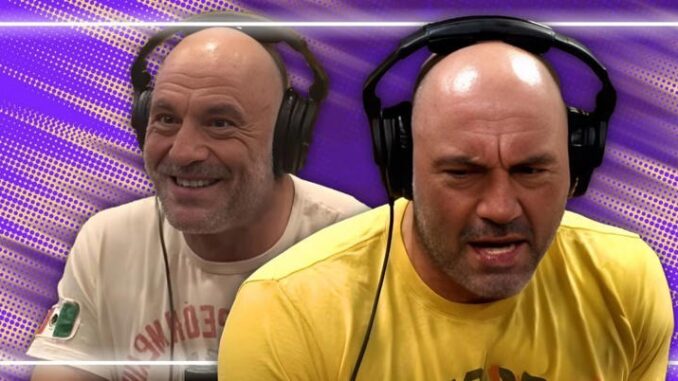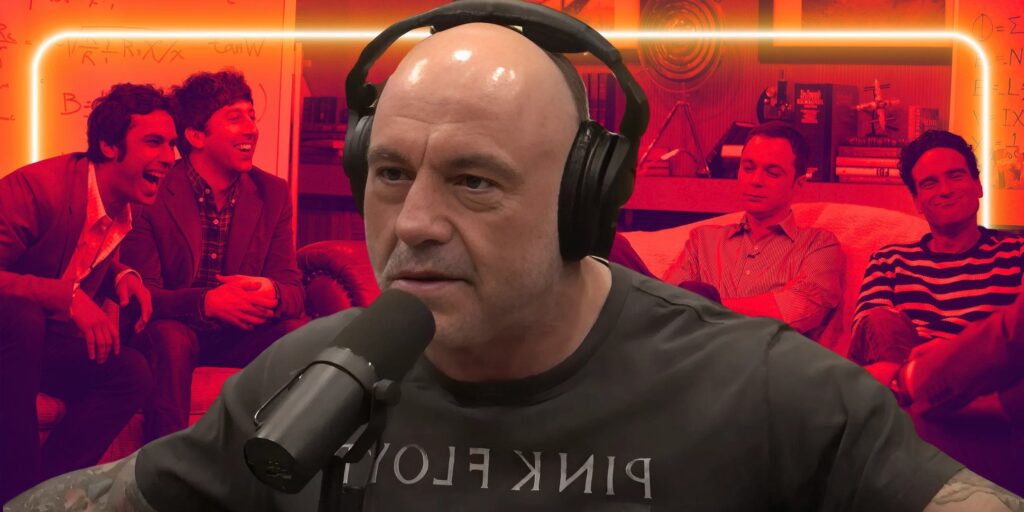
Joe Rogan, comedian, podcast host, and former sitcom star, has never shied away from sharing his opinions on a wide range of topics. From discussing fitness journeys to critiquing entertainment, Rogan’s candid remarks have garnered him a massive audience through The Joe Rogan Experience. Among his many hot takes, one that caught attention was his perplexity over the immense popularity of The Big Bang Theory.
During a June 2024 podcast episode featuring comedian and sitcom creator Ms. Pat, Rogan revisited the sitcom format, reflecting on its evolution and his own career in television. While discussing Ms. Pat’s show and its bold approach to humor, Rogan expressed disbelief at how The Big Bang Theory became a cultural phenomenon, calling its success “strange.”
What Makes The Big Bang Theory Polarizing?
As one of the most profitable sitcoms in television history, The Big Bang Theory has undeniably cemented its legacy. Its unique blend of nerd culture and traditional sitcom elements earned it a devoted fan base and a place among the most-watched shows of its time. However, the show also drew criticism for relying on stereotypes and laugh tracks, which some felt undermined its authenticity.
Joe Rogan seems to fall into the camp of skeptics. During the podcast, he recounted watching an edited clip of The Big Bang Theory—one that had the laughter removed. This altered version made Rogan question how anyone found the show funny, stating:
“Why are people laughing at this? This is strange.”
Rogan’s criticism isn’t entirely new. Similar sentiments were echoed in a 2018 Screen Rant article that dissected the reasons behind The Big Bang Theory’s divisive reception. While fans cherished the quirky characters and witty banter, detractors viewed the humor as formulaic and reliant on clichés.
Rogan’s Reflection on Laugh Tracks and Sitcoms
The conversation with Ms. Pat naturally steered into the broader topic of laugh tracks in sitcoms. Rogan shared his skepticism about pre-recorded or “canned” laughter, a technique used to amplify humor when live audience reactions are absent. Ms. Pat pointed out how canned laughter became a crutch for some sitcoms, noting:
“If you ain’t wrote nothing that’s funny and you ain’t got nobody sitting there, you can just drop in the laughter.”

This discussion prompted Rogan to draw comparisons with older sitcom formats, where live audiences provided genuine laughter, creating a more organic comedic environment. However, Rogan acknowledged that The Big Bang Theory’s use of a studio audience didn’t necessarily translate to comedic brilliance in his eyes.
Joe Rogan’s Own Sitcom Experience
Rogan’s critique of sitcoms, particularly those reliant on laugh tracks, carries additional weight given his own background in the genre. From 1995 to 1999, Rogan starred in NewsRadio, a workplace comedy that featured live audience laughter. Unlike The Big Bang Theory, NewsRadio enjoyed a cult following without polarizing its viewers to the same extent.
Reflecting on his sitcom career, Rogan has admitted that NewsRadio was a pivotal experience, one he never sought to replicate. Speaking on his podcast, Rogan revealed that he walked away from sitcom acting because no other project could live up to the joy and fulfillment he found on NewsRadio.
“That’s the reason why I never did another one. I don’t wanna ruin that experience.”
Instead, Rogan pivoted to pursuits he found more meaningful, such as stand-up comedy, podcasting, and UFC commentary—careers that offered him greater creative freedom.
A Matter of Taste
Joe Rogan’s opinions on The Big Bang Theory ultimately highlight the subjective nature of comedy. While millions loved the show’s blend of geek culture and classic sitcom tropes, others, like Rogan, found its appeal baffling. Whether through laughter or critique, one thing is clear: The Big Bang Theory has left an indelible mark on television, sparking conversations long after its final episode aired.